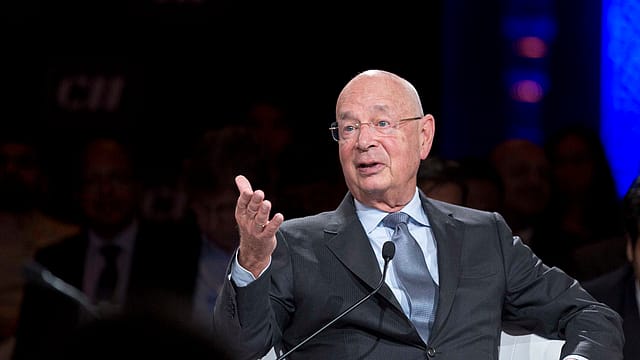Gandhian Klaus Schwab and data trustees
ADVERTISEMENT

The grand old man of the World Economic Forum Klaus Schwab said recently that we have entered the age of stakeholder capitalism.
Schwab’s point is that there is too much short-term thinking in business, and companies must pause to consider the long-term impact of their plans on the future of their companies and indeed the future of the ecosystem, or the environment, in which the company operates.
For Schwab this thinking is not new. He developed what is known as ‘stakeholder theory’ around 40 years ago. The stakeholder theory is, in a sense, the opposite of the stark teaching of Milton Friedman that the business of business is, well, business, or maximising shareholder profit. Any business that distracts from that core value does not do any good to itself or the environment in which it operates.
So-called progressives would like to devalue Friedman’s argument, but it has particular potency in a world of shrinking corporate profits with another downturn hovering above.
But Schwab is clearly saying that businesses need to be aware of more than profits, that they are stakeholders in something greater than their bottom line. They are partners in the future.
This line of argument, too, has growing legitimacy in a world troubled by environmental degradation and reckless behaviour (for instance in data security) by some of the world’s biggest companies.
So, what bridges these arguments? Or are they destined to forever be antagonistic to one another?
I would argue that the bridge is Mahatma Gandhi, or rather, his thoughts on capitalism and his theory of trusteeship.
Contrary to popular belief, Gandhi, who died in the home of a capitalist, was not ‘anti-business’. He was anti-greed. Gandhi was one of the earliest people who understood that capitalism based only, or even mostly, on exploitation of labour, is unsustainable. He was one of the pioneers of the idea that capital and labour are the twin pillars (stakeholders, if you will) of the process of profit-making. Gandhian ethics envisage a transition from feudalism to a modern corporation-driven economy without the violent disruption of communism and with a strong emphasis on sustainable development at the grassroots (as described by Gandhi in his vision for self-sustaining village economies).
Explaining his theory of trusteeship, Gandhi told the French journalist Charles Petrasch in 1931 that “they could keep the money, but they would have to work for the benefit of the people who procured them their wealth”.
That the worker and the capitalist and indeed the consumer are part of the same revolving chain of stakeholders where any adverse impact on one could impact the others is a classic Gandhian insight.
Gandhi was also prescient in suggesting that the ‘profit-only’ motivation would not do in a world with finite natural resources. Think about it: companies can, technically, concern themselves only with expanding shareholder value if the resources that they use (including natural resources) are infinite. But when resources are finite, in fact, often scarce, there is an inevitable tussle between retaining resources for communitarian use versus profitable use by a company.
In this, the shareholder approach, or Gandhi’s wise reminder that businesses and their owners hold the wealth of society as trustees for society and the greater common good, seems particularly relevant today. Businesses can only deliver sustainable products long term if their employees lead sustainable lives, including work lives, and their customers share that lifestyle and demand those products.
This sense of ‘sharedness’ is infinitely heightened when we consider that some of the biggest and most powerful companies in the world today sell something that is provided to them by their users and customers—data.
In a world where data is more precious than oil, it is impossible to imagine a scenario that all that companies would worry about are their profits. They are now in a stakeholder universe where they hold and process their most precious and profitable item—user data—strictly as trustees.
Therefore, it is my argument that Schwab’s stakeholder principles and Gandhi’s trusteeship ideas are ever more important today. In a world where data is the engine of profits, without such principles we shall see mass and brutal exploitation by Internet giants (some examples are already starkly evident) even as they sell our data to the highest bidder no matter how nefarious the end use.
It is therefore my contention that in essence Klaus Schwab may well be a Gandhian and never before has Gandhi’s principles of considering a market-fuelled world been more relevant and indeed urgent than today.